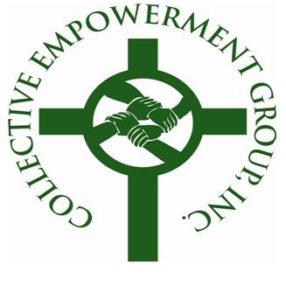By James Clingman
On December 3, 2015, the Collective Empowerment Group (CEG), formerly known as the Collective Banking Group (CBG) of Prince George’s County and Vicinity, will celebrate a milestone achievement— its 20th anniversary.
The CEG was established in 1995 by 21 churches in response to discrimination and mistreatment by banks, some of which had financed church buildings but refused to make loans thereafter for renovations and business development.
Instead of wringing their hands, whining, and begging the banks to change, Jonathan Weaver, Pastor of Greater Mt. Nebo A.M.E. Church, rallied a few of his fellow ministers to respond appropriately to those banks. They used their collective leverage, via the members of their respective congregations, to obtain reciprocity from the banks that they chose to be “in covenant” with. Banks began to “compete” for the churches’ business by coming to the leaders of the CEG to make their presentations. In other words, the banks did not interview the churches. Rather, the churches interviewed the banks.
Important to note are the reciprocal relationships that evolved from the initiative of the churches and their refusal to continue doing business as usual. Both sides won. The banks understood the value of being in what was called a “covenant relationship” with this newly formed dynamic group, and the churches understood the leverage they had by working collectively and cooperatively, across theological persuasions, toward business solutions for their members.
The CBG became the CEG as a result of its growth from 21 churches to nearly 150 churches comprising 175,000 members, and its desire to involve itself in other business relationships. The CEG’s aim was to be more holistic in its approach to the myriad of issues affecting the daily lives of Black people. Thus, as a result of CBG leadership recognizing the possibilities of doing even more business with other retailers (i.e. furniture stores, carpet outlets, and organizations involved in health, politics, insurance, professional services, and supplies), the name was changed along with the organization’s scope of service. Not-for-profit entities were also invited to work with the CEG, again creating mutually beneficial relationships and opportunities not ordinarily available.
The CEG Strategic Partners, usually small business owners and service providers, not only gain access to the individual members of the CEG with whom they can do business, they respond by offering discounts and other special considerations to the CEG members. Having helped start a chapter of the CEG in Cincinnati, Ohio, I can personally attest to the benefits offered by CEG Strategic Partner businesses.
Innovative, practical, bold, and beneficial are just a few words that describe the CEG, its leadership, and individual members and partners. CEG churches do not continue to complain about how they are mistreated despite spending significant amounts with businesses and depositing large sums of money into banks that do not reciprocate. CEG churches take the issue into their own hands, first by understanding the power of leverage and then by being willing to address any inequities that exist in their business relationships via their collective clout.
Just imagine the economic progress we would make if hundreds and even thousands more Black churches throughout this country would form CEG chapters and replicate what has been done in the original chapter and now in other local chapters. After all, as Willie Sutton once said, “That’s where the [Black] money is.”
Although I have written several newspaper columns about the CEG, I never tire of doing so because it has done such great work in the area of economic empowerment. And because I hear so many of our brothers and sisters asking, “What are the churches doing?” I am compelled to share CEG with any and all who will listen. Many churches across the country are doing some fantastic things on an individual basis, that cannot be denied. The CEG demonstrates what can be done collectively, and it graphically illustrates that there is, indeed, power in numbers. I am thrilled to have the opportunity to write about this outstanding organization, and I will continue to sing its praises for spreading the gospel of economic empowerment.
Kudos, congrats, and bravos to the CEG, its visionary, Pastor Jonathan Weaver, and its current leadership, President Anthony G. Maclin and Executive Director, Dr. Diane H. Johnson. Just as important are all of those who followed their lead, locally and nationally, to establish what has now become a two decades-old successful organization. Can I get an “amen”?
You can celebrate with the CEG and learn more about how it began and what it is doing now by attending their 20th Anniversary Gala in Bowie, Maryland. For more information just go to collectiveempowermentgroup.org or call 301.699.8449.



